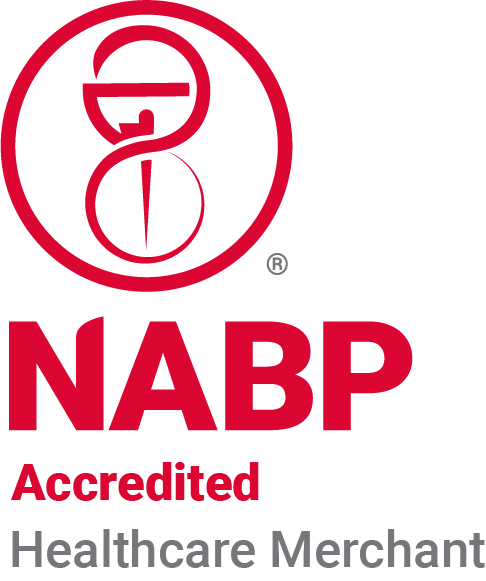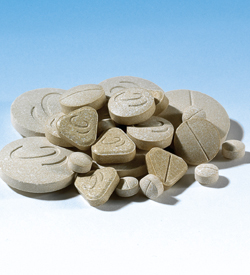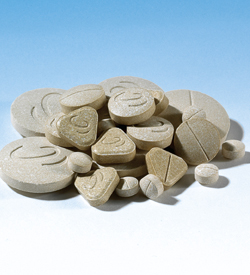Free Delivery on $50+*
Providing Quality & Trust
Cisapride Gourmed Chew Tabs
Wedgewood Pharmacy
$94.50 - $98.50
$94.50 Each
Detailed Description
CISAPRIDE: GOURMEDS CHEWABLE TABLETS
Cisapride may be prescribed for
- Constipation
- Megacolon
- Gastric Stasis
One of the dosage forms available for Cisapride is Gourmeds Chewable Tablets. A Wedgewood Pharmacy exclusive. Gourmeds ® tasty, chewable tablets contain natural, food-grade ingredients in fish and chicken flavors that pets love. Gourmeds are available for the most commonly prescribed compounded preparations, and may make administering compounded preparations easy for pet owners.
3 strengths of Cisapride Gourmeds Chewable Tablets are available, ranging from 2.5 mg/tab to 10 mg/tab.
General Drug Information and Indications
Cisapride is a drug that is used to stimulate the smooth muscle that lines the digestive tract, causing the contents to move further along through the esophagus, stomach and the intestines. Cisapride is used in cats for conditions such as megaesophagus, chronic constipation and megacolon. It is used in dogs to reduce vomiting associated with megaesophagus, or other conditions that slow the emptying of the stomach. Like many other drugs in veterinary medicine, Cisapride is not FDA approved for use in animals; however, it may be compounded by a specialty pharmacy for your pet. Cisapride is considered accepted practice within veterinary medicine.
How to Give this Medication
Give this medication to your pet exactly as your veterinarian prescribes. If you miss giving your pet a dose of cisapride, give the next dose as soon as you remember or, if it is close to the next scheduled dose, return to the regular schedule. Do not double dose in order to catch up.
Cisapride is usually given at least 30 minutes before feeding.
Cisapride does not cure the condition for which it is given. Treatment is generally continued for the life of the animal.
Wash your hands after giving your pet this medication.
Side Effects
Be sure to discuss any side effects with your veterinarian immediately.
Cisapride is generally well tolerated in cats and dogs. The most common side effects are vomiting, diarrhea or abdominal pain.
Changes in heart rhythm are a rare side effect in animals.
Precautions
Keep this and all drugs out of reach of children. Cisapride is a prescription drug and should be used according to your veterinarian’s directions. It should only be given to the animal for which it was prescribed. Do not give this medication to a person.
If your pet has severe liver disease, the vet may lower the cisapride dose.
High doses of cisapride have been shown to cause problems during pregnancy in laboratory animals and appears in maternal milk in small amounts. Cisapride would only be used during pregnancy or in nursing animals when the benefits outweigh the risks.
Drug Interactions
Be sure to review with your veterinarian any drugs your pet may be taking.
Cisapride is metabolized by the liver. If taken with other drugs that are also metabolized the same way in the liver, they may interfere with cisapride levels. These drugs include: Amiodarone, ketoconazole, itraconazole, fluconazole, chloramphenicol, cimetidine, fluvoxamine, grapefruit juice or powder, and certain antibiotics such as erythromycin.
Although changes in heart rhythm due to cisapride are rare, there are some other drugs that also can change the heart rhythm. If cisapride is used with these drugs, the risk for heart complications increases. These drugs include amiodarone, clarithromycin, moxifloxacin, procainamide, quinidine, sotalol and tricyclic antidepressants.
Because cisapride decreases the amount of time it takes for food or drugs to pass through the digestive tract, it may affect the absorption of other oral drugs.
Overdose
If you suspect your pet or another animal was overdosed accidentally or has eaten this medication inadvertently, contact your veterinarian or the A.S.P.C.A.’s Animal Poison Control Center at 888.426.4435. Always bring the prescription container with you when you take your pet for treatment.
If you or someone else has accidentally ingested this medication call the National Capital Poison Center at 800.222.1222.
Storage
Different strengths or dosage forms of cisapride may have different storage requirements. Read the labeling or ask your pharmacist for the storage requirements of the prescription you receive.

Powered by nopCommerce
This site is running in live payment mode. Real payments will be processed.

